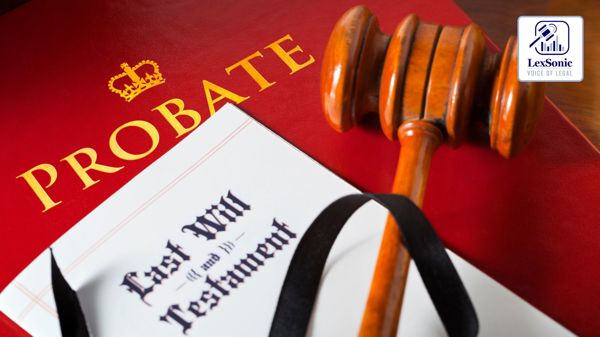Supreme Court Scrutiny: When Disinheritance Raises a Red Flag on a Will's Validity.
17 July 2025
Civil Appeals >> Civil & Consumer Law | Wills & Estates >> Inheritance
In a significant ruling of Gurdial Singh (Dead) Through Lr. v/s Jagir Kaur (Dead) & Others, the Supreme Court of India recently delved into the intricacies of proving a Will, particularly when its execution is clouded by "suspicious circumstances." The case, involving a nephew propounding a Will that disinherited the testator's wife while denying her marital status, highlights the solemn duty of courts to ensure a Will truly reflects the free and uninfluenced intent of the deceased.
The Heart of the Dispute:
The case revolved around the property of one Maya Singh. His nephew, the appellant, asserted ownership based on a Will allegedly executed by Maya Singh, bequeathing his land to him. Crucially, the nephew also contested the marital status of Maya Singh's wife (the 1st respondent) and their adopted son (the 2nd respondent).

Conversely, the 1st respondent filed a separate suit, seeking a declaration of her status as Maya Singh's lawfully wedded wife and the 2nd respondent as their adopted son.
The Trial Court initially upheld the nephew's Will as genuine, granting him ownership of the land. However, it also confirmed the 1st respondent as Maya Singh's lawful wife. The First Appellate Court concurred with the Trial Court's decision on the Will's genuineness.
Aggrieved, the 1st respondent appealed to the Punjab & Haryana High Court. The High Court reversed the concurrent findings of the lower courts, ruling that the Will was suspicious because it failed to mention Maya Singh's wife or provide reasons for her disinheritance, thus exposing a lack of "free disposing mind" of the testator. It concluded that the 1st respondent was the rightful owner of the land. The nephew then appealed to the Supreme Court.
The Core Legal Question:
The principal issue before the Supreme Court was: Does the non-mention of the wife's status and the failure to provide reasons for her disinheritance in the Will constitute a "suspicious circumstance" that invalidates the Will, indicating a lack of the testator's free and independent will?
Arguments and Legal Principles:
The appellant argued that the Will was registered and duly proved by attesting witnesses. He contended that the mere non-mention of the wife's name should not invalidate it, especially since the wife received other benefits like pension.
The respondents, however, countered that the wife had a good relationship with Maya Singh, and the appellant's attempt to deny her marital status alongside disinheriting her was a "sinister design." They argued that the Will's silence on the wife's existence and the lack of reasons for her disinheritance pointed to the appellant's undue influence, not the testator's true intent.
The Supreme Court reiterated established legal principles for proving a Will, emphasizing that while a Will must be proved like any other document (under Section 63 of the Indian Succession Act, 1925, and Section 68 of the Indian Evidence Act, 1872), the absence of the testator places a "solemn duty" on the court. The propounder bears the heavier onus not only to prove due execution but also to dispel all suspicious circumstances that cast doubt on the testator's "free disposing mind."
Referring to precedents such as Smt. Jaswant Kaur v. Smt. Amrit Kaur and H. Venkatachala Iyengar vs. B.N. Thimmajamma, the Court highlighted that suspicious circumstances can include a shaky signature, a feeble mind, an unfair disposition of property, or the propounder taking a leading role while receiving a substantial benefit. However, it cautioned, citing Indu Bala Bose and PPK Gopalan Nambier, that not "any and every circumstance" is suspicious; they must be "real, germane and valid features and not fantasy of the doubting mind."
Supreme Court's Analysis and Verdict:
The Supreme Court critically reviewed the lower courts' findings. While acknowledging that the disinheritance of a natural heir might not, by itself, always amount to a suspicious circumstance, it stressed the need for prudence and a reason for such an act. Crucially, the Court asserted that suspicious circumstances must be examined cumulatively and not in isolation, especially when "unusual features appear in a Will or unnatural circumstances surround its execution," as held in Leela Rajagopal v. Kamala Menon Cocharan.
Applying this "prism," the Supreme Court found the unique facts of the case compelling. It noted the appellant's dual objective: propounding the Will and denying the wife's marital status. The Will's "cryptic" nature, its complete silence regarding the wife's existence, and the absence of any reason for her disinheritance were deemed significant. Despite evidence indicating a good relationship between Maya Singh and his wife (she lived with him until his death, and he nominated her for pension), the Will conspicuously erased her presence. The Court dismissed the lower courts' inference about strained relations based on the wife not performing last rites, explaining that traditionally, male family members often perform such rites in Hindu/Sikh families.
The Supreme Court concluded that this "unusual omission to mention the very existence of his wife in the Will" gave rise to serious doubt that the Will was Maya Singh's "free will." It determined that "such erasure of marital status is the telltale insignia of the propounder and not the testator himself," and that the testator's free disposition was "vitiated by the undue influence of the appellant."
Affirming the High Court's judgment, the Supreme Court dismissed the appeals, thereby invalidating the Will and upholding the wife's claim to the property. This judgment reinforces the principle that courts must thoroughly scrutinize Wills, especially when natural heirs are disinherited without clear justification, ensuring that the deceased's true intentions, free from any manipulation, are given effect.
